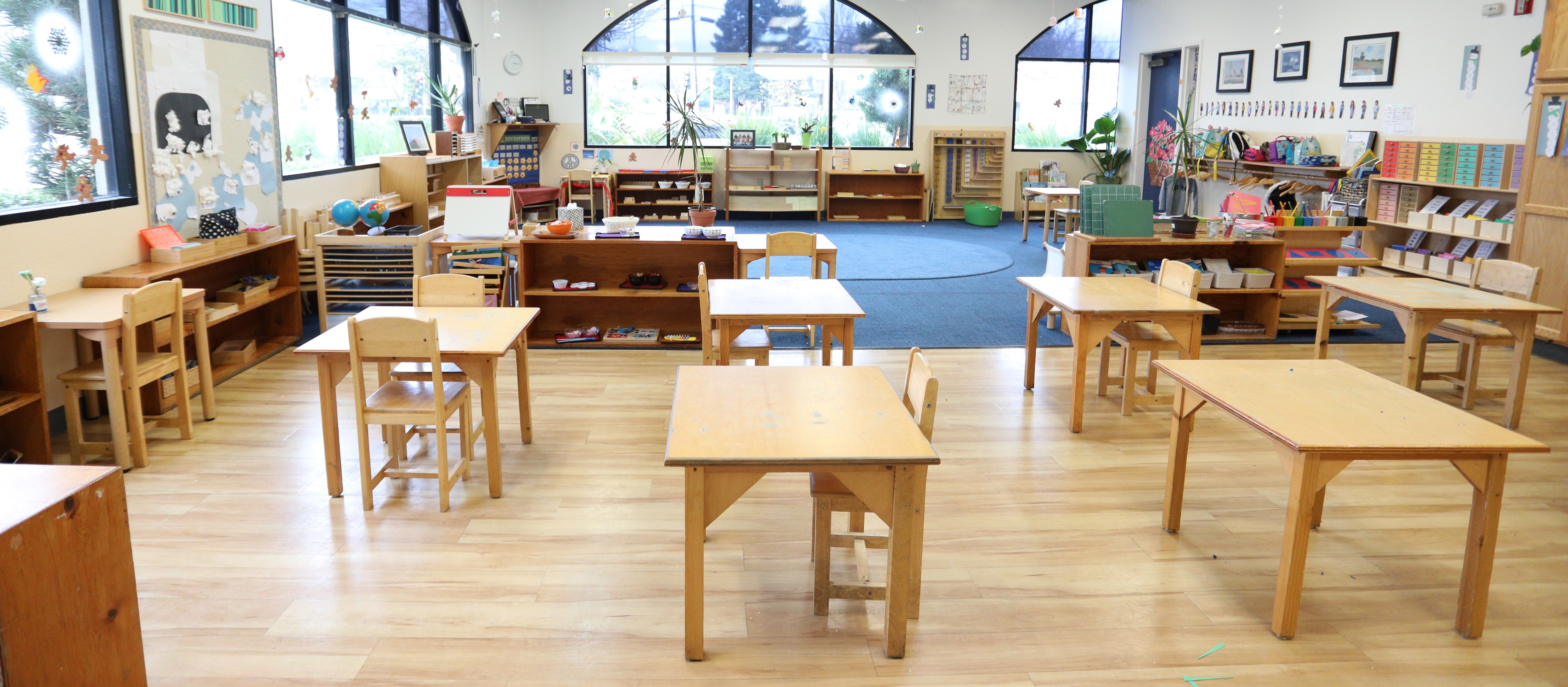The Montessori Classroom Community

The Montessori classroom community is prepared with a wide array of materials selected and designed to meet the needs of the individual children it serves.
A variety of materials are provided for all levels of development to allow children to progress through the curriculum as their skills develop.
Typical areas of a Montessori Pre-school/Kindergarten classroom include: Everyday Living; Math; Sensorial; Language; Nature Study; Geography; Science; Music; Art; Movement.
Called family groupings, the classes are composed of a three-year age span for the preschool programs.
This allows for peer teaching, broad social interactions, individual differences in learning style and pace, and creates a social community of family.
It provides the youngest students with a graded series of role models and the older students with peer teaching opportunities for reinforcement of learning.
Each child learns and develops at their own pace through the use of materials and lessons introduced by trained staff.
The integrated curriculum is introduced sequentially and at the developmental level of each individual child, allowing every child to work to capacity and at their ability level.
Within the structure of the classroom and curriculum, children are encouraged to pursue their interests, make responsible choices for themselves and direct themselves to constructive activities.
Since children’s interests vary, this opportunity results in an independent, self-motivated learner.
The school environment is prepared with a variety of specially designed Montessori materials – multi-sensory, sequential and self-correcting.
Educational materials are carefully selected to meet the needs of range of students in each class and to meet the goals of the program.
In addition to background and experience in early childhood education, teachers receive specialized training in the Montessori Method.
Training programs throughout the world prepare and certify teachers in the field.
The course of study includes educational philosophy, academic training in the curricula areas, early childhood development, classroom management, and use of materials for individual lessons.
The use of materials for learning in the Montessori classroom is an integral part of the program from preschool through Kindergarten and beyond.
Based on a belief that children learn by doing, lessons for math, language and all subject areas include hands-on materials for use by the student.
The Montessori environment is rich in language. Whether through conversation or language games the young child is surrounded by vocabulary and the sounds of the English Language. At our schools we use a phonetic approach to writing and reading. Phonics is a method of teaching reading and writing by developing the ability to hear and identify sounds of the English language.
Learn More